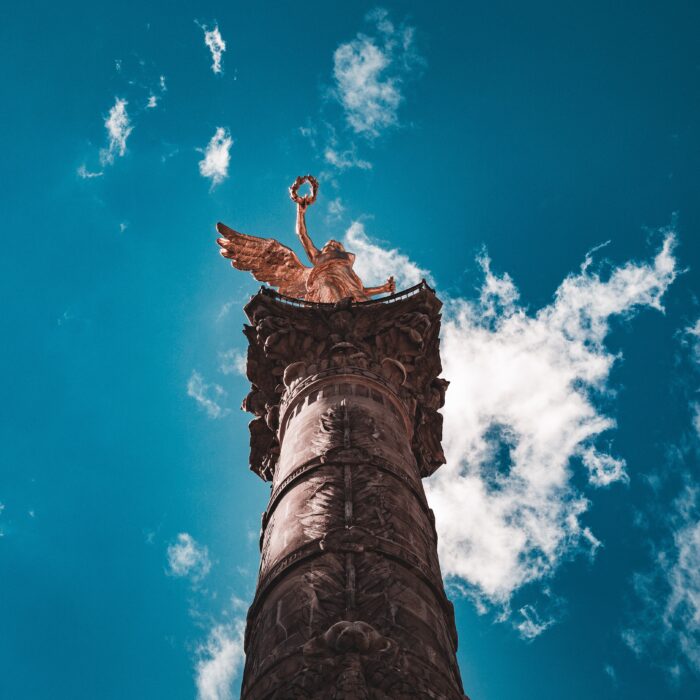You have no items in your cart. Want to get some nice things?
Go shopping
Four hours. Here for four hours.
Red dirt swirls up in a gust of wind falling on a pack of stray dogs with grungy, knotted fur and skin-bone legs. They lower their heads from too thin frames as I rattle the locked door of Javier’s new, tan house.
I look down the unpaved road, the ground lined with vague tire tracks, and watch slow cars as they move like uneven scales tipping and swaying on the path. Cheap brick houses self-stacked with white pasty concrete line the street with unfinished sides and tops.
It’s barren, it’s old, it’s poor, and I’ve got four hours to kill on the outskirts of Cusco, Peru, waiting for my host to get home.
“Amigo! I’m glad you called. Look, I’m sorry, I know I said I would be home around seven, but I forgot that my brother’s don’t get out of school today until nine. So, I won’t be home until about ten. Is that okay?”
“Of course, Javier! Take all the time you need. I’m the one staying at your place, so don’t worry about me.”
That’s when I learned my first lesson in Couchsurfing.
There are only two types of people in Couchsurfing: the ones that give you a key to their house and the ones that don’t.
I can’t blame Javier though, living in Peru and some stranger from the internet messages you asking to stay at your place for a couple days, sleep in your house, and you guess who he is from his profile and references, and you hope he’s nice like the others, but really you have no idea who he is.
So why would you give him a key? What has he done to deserve it?
Alright, these things happen while traveling. The town is safe and Peruvians really are nice, happy people, so I’m not in any danger no matter how obviously my six foot, white, bearded male genes label me as the Tourist Gringo with a stack of money in his pocket and a tablet in his backpack.
Gringo, a term I never encountered while living in California. When I first started traveling in South America, I wasn’t sure if the word was harmless and humorous or actually seeded in racism, just as bad as certain words in America.
The first time I was called a Gringo, I’d entered a Hospedaje and had handed the receptionist my passport, which has my full name on it.
We spoke in Spanish, but the conversation went something like this:
“How do you say this?” His finger bounces up and down on the word Jordan.
“Jordan.”
“Hordano?”
“No, no. Jordan.”
“Horhe?”
“No, no. Jor. Dan.”
“Fernando?”
“No. Umm you know Michael Jordan?” I put up my hands like I’m shooting a basketball and repeat the name.
“Ohhh. Yes, yes!” His fat cheeks part with a smile, “Michael Jordan.”
“Yes, but just Jordan.”
“Ahhh. Okay, okay. Are you Michael Jordan?” He looks at me with joking suspicion pushing his fat cheeks wider.
“No, no, no. I’m not Michael Jordan.”
“Hahaha, no. You are white.”
A little thrown off, I laugh nodding and respond matter-of-factly, “Yes, yes. Haha, I am white.”
“Yes, yes.” He stops laughing, leaning his head in toward me, “You are Gringo!”
Then he leans backward and laughs loud, like really loud, and I start laughing too, unsure if he is being comical or just called me something similar to the N word.
Later, when a school bus of staring children started chanting Gringo at me, I was forced to ask the nearest person by me about the term. I was happy to learn it’s just a harmless word commonly used for white people, especially those from North America.
Four hours.
I get some food.
Chicken feet float in my green soup like soggy, sunken ships.
I walk back to the door. It’s locked.
A drunk Cholita leans on the chest of a smiling man. As the Cholita walks, her legs crisscross out from her rainbow, puffy dress as if a game of hopscotch was written in the dirt. They speak Quechua – an old, native language I don’t understand – and she laughs in a high, quiet pitch, while the man stretches his arms around her.
With them under the poorly lit, brick red Hospedaje, Javier’s voice runs through my mind.
“In American you have drive-throughs for coffee and hamburgers, right? Well this sign here,” he points to the yellow, block letters, “says room available for 1 hour, only 3 Sols. It’s kinda like our version of fast food, but instead of food, it’s sex.”
She laughs again as they enter the building.
I walk and walk, past the rows of pollo houses, and all the one-stop stores, and all the busy internet cafes. My Gringoness radiates out from above me like an advertisement, obvious to all the taxis slowing their cars to a halt. They honk, sliding their necks around empty car seats till I wave them off.
I walk back to the door. It’s locked.
I search for a bar, but only see what can be best described as open-room-bars where residents sit hammered around plastic tables and plastic chairs. Their eyes drift in a sink of red, looking me up and down as I pass.
I buy a beer at a one-stop store and walk to an old, white, colonial church. Forty churchgoers exit the church and eat cake happily on the bench beside me. They offer me some, but I smile and tell them, “I’m okay, but thank you.”
I get another beer and sit on a different bench by the church.
A stray dog – deathly skinny with a rib cage like skeleton fingers holding his lungs – stares into my eyes without looking away. I covertly move toward the trashcan by the churchgoers and clandestinely remove some leftover cake from the bin. Back at my bench, I drop the cake to the floor.
“Here you go buddy. Our little secret, huh?”
The dog smells it, looks at me, and walks away. The churchgoers glance over with disdain. Standing above the pile of cake on the floor, I stare back blankly.
I leave.
I walk back to the door. It’s locked.
I sit, and I sit, and I sit.
There are two types of people in Couchsurfing: The ones that give you a key to their house and the ones that don’t.
Down the street, a great red dust flies into the air hitting the old houses, scaling up their cheap brick walls, passing over their unfinished tops. From one house, a water pipe drips onto the street and a pack of dogs licks the puddle with muddy goatees on their chins.
“So Amigo, you graduated, worked for a couple months, then decided to travel?”
Earlier that morning, I caught a collectivo with Javier to downtown Cusco.
“Ya, I guess when you put it like that it seems quite simple.”
“Wow,” he looks away from me. His cheekbones, pushing sharp against the skin of his face, project his wide, pointy nose forward, diminishing his eyes to minuteness.
The van shakes along the unpaved road. The people standing in the space between seats push a hand up against the roof. Their backs hunch like cursive writing.
He looks back towards me pulling his black laptop side-bag closer towards him, “And you’re from California?”
“Ya, ya. Have you been?”
“No. I want to, someday, but first I need to see more of South America.”
“Really?”
“Yes, yes Amigo.” A smile forms opening his small eyes into white pushpins, “I have only been to Lima and Cuzco, for work.”
“You’ve never been elsewhere?”
“No Amigo. It’s too hard with my brothers. I need to look after them you know? I’m only 26, but I’ve been looking after them now for ten years.”
“You have brothers?”
A man with bills in his hand exits the van yelling the name of a street against the rattling car noises. The van begins to move and he hops back in, collecting the new passenger’s fee.
“Fernando and Alexi. They’re ten and twelve. You’ll meet them later, but they’re at school now. I’m working with a startup businesses in Peru right now so they can keep going to the nice private school a little out of town. That’s where I head these mornings.”
“Really?”
“Ya Amigo, and I also go to school. Yes, I study economics and computer science at night, but tonight I only have one class until seven, so I should be home around then. Oh! Here’s my phone number.” He takes a white business card out from his wallet, “Call me around six. You’ll have to use the street phones because a lot of people here don’t have phones yet, but I have an iPhone.”
The van bumps us up and down in our seats as he shows me a phone newer than mine. He smiles as his head sways from side to side shaking his thin, black hair.
I get up from the bench and stretch a little, looking down the road. Dusty beer bottles litter the floor, a bin hangs broken on a wall, internet cafe lights blink. Then three shadows pass into the light and the black side-bag resting on the hip of one of them tells me it’s Javier and his little brothers.
“David! Amigo, I’m sorry. I totally forgot that my brothers have school late on Thursday. Were you okay? I should have given you the key.”
Then like an antithetical Gatsby reaching toward the future, he pushes his arm out to the new, tan paint of his building turning the silver key to open the lock on his door.
“No, it’s okay. That’s your house and your key, not mine.”
There are two types of people in Couchsurfing: the ones who can give you a key to their house and the ones who can’t, yet.

David Hargreaves
David Hargreaves is homeless. He currently spends his time travelling South America asking strangers online if he can sleep on their couches. He writes, plays music, wanders, gets groceries, drinks, sleeps, and wakes up to do it again, hopefully in a different place, hopefully on a different couch, hoping a good story comes from it. You can tell him what you think at jhargreaves231@gmail.com.




